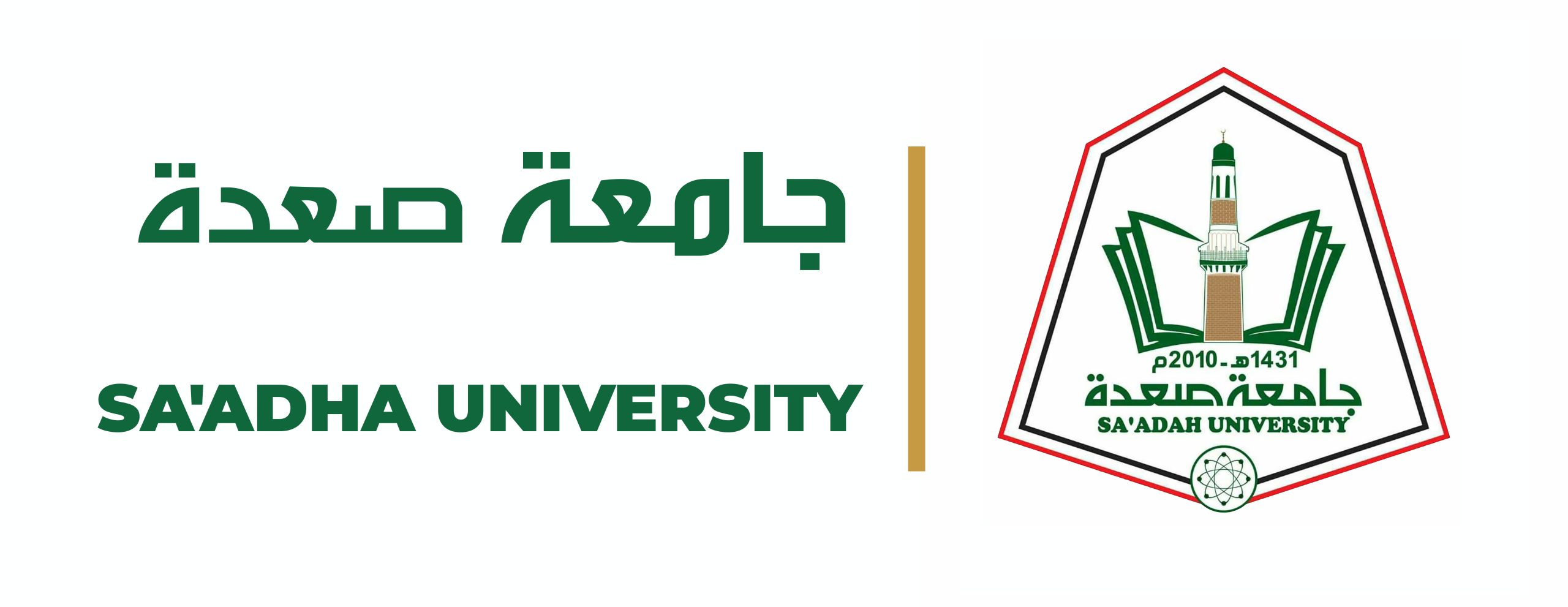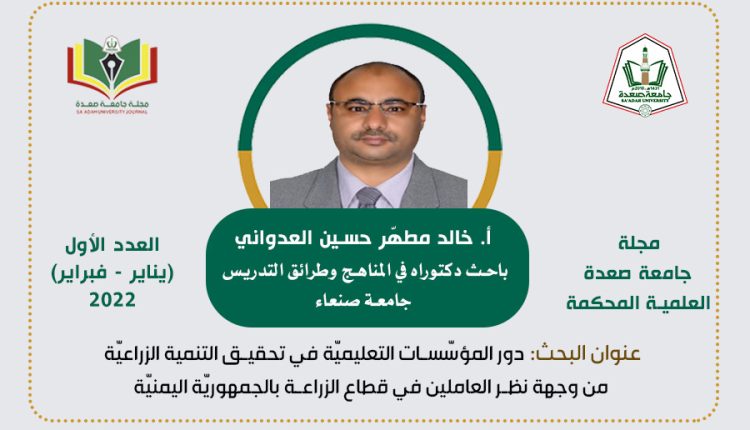دور المؤسسات التعليمية في تحقيق التنمية الزراعية من وجهة نظر العاملين في قطاع الزراعة بالجمهورية اليمنية
دور المؤسسات التعليمية في تحقيق التنمية الزراعية من وجهة نظر العاملين في قطاع الزراعة بالجمهورية اليمنية
أ. خالد مطهّر حسين العدوانيّباحث دكتوراه في المناهج وطرائق التدريس – جامعة صنعاء
الملخّص: هدفت الدراسة إلى التعرّف على دور المؤسّسات التعليميّة في تحقيق التنمية الزراعيّة من وجهة نظر العاملين في قطاع الزّراعة بالجمهوريّة اليمنيّة؛ ولتحقيق أهداف الدراسة استخدم المنهج الوصفيّ المسحيّ، واستخدمت أداة الاستبانة لجمع البيانات، وتكوّنت من خمسة مجالات رئيسيّة، ويتفرّع منها (40) فقرة فرعيّة، وتمثّلت العيّنة من العاملين في قطاع الزّراعة في عدد من محافظات الجمهوريّة اليمنيّة، وبلغ عددهم (80) عاملاً، واستخدمت المعالجات الإحصائيّة المناسبة. وقد توصّلت الدراسة إلى عدد من النتائج، أهمّها:
-
أتت الأدوار المرتبطة بالمعلّم في المرتبة الأولى من بين بقيّة المجالات، تليها الأدوار المرتبطة بالأنشطة المدرسيّة في المرتبة الثانية، ثمّ الأدوار المرتبطة بالمنهج المدرسيّ في المرتبة الثالثة، وفي الترتيب الرابع أتت الأدوار المرتبطة بالمتعلّم، وجميعها كانت بدرجة أهميّة كبيرة جدّاً، بينما تأتي الأدوار المرتبطة بالقيادة التعليميّة في المرتبة الخامسة والأخيرة بدرجة كبيرة.
-
لا توجد فروق ذات دلالة إحصائيّة عند مستوى دلالة 0.05 بين استجابات عيّنة الدراسة بحسب المتغيّرات (المؤهل العلميّ – التخصّص – نوع العمل – سنوات الخبرة).
وبناءً على ما توصّلت إليه نتائج الدراسة قُدّمت عدد من التوصيات، أهمّها تضمين المفاهيم والقيم الزراعيّة في محتوى المناهج الدراسيّة وفي جميع المراحل الدراسيّة بما يحقّق التنمية الزراعيّة، ووضع مادة دراسيّة رسميّة باسم التربية الزراعيّة لتهتمّ بموضوعات التنمية الزراعيّة بشكل شامل، وتفعيل الأنشطة التعليميّة المختلفة المرتبطة بالتنمية الزراعيّة داخل المدرسة وخارجها، وتعزيز دور المعلّم في تبني الإرشاد والتوجيه للطلبة في مجال التنمية الزراعيّة وحثّهم وتوعيتهم بأهميّة الزراعيّة والتنمية الزراعيّة وسبل تطوير الزراعة وفق الظروف الراهنة.
اضغط هنا للإطلاع على البحث، الدراسة:
https://drive.google.com/file/d/1aGBUDJWXLeI-efYXO6JjX_MbOqIOYu1c/view?usp=share_
The Role of Educational Institutions in Achieving Agricultural Development from the Point of View of Workers in the Agricultural Sector in the Republic of Yemen
researcher
Khaled Mutahhar Hussein Al-Adwani
PhD researcher in curricula and teaching methods – Sana’a University
Abstract:
The study aimed to identify the role of educational institutions in achieving agricultural development from the point of view of workers in the agricultural sector in the Republic of Yemen. The sample of workers in the agricultural sector in a number of governorates of the Republic of Yemen reached (80) workers, and appropriate statistical treatments were used, and the study reached a number of results, the most important of which are:
-
The roles associated with the teacher ranked first among the rest of the fields, followed by the roles associated with school activities in the second rank, then the roles associated with the school curriculum in the third rank, and in the fourth rank came the roles associated with the learner, all of which were of a very great degree of importance, while the roles Associated with educational leadership ranked fifth and last to a large extent.
-
There are no statistically significant differences at the significance level of 0.05 between the responses of the study sample according to the variables (scientific qualification – specialization – type of work – years of experience).

